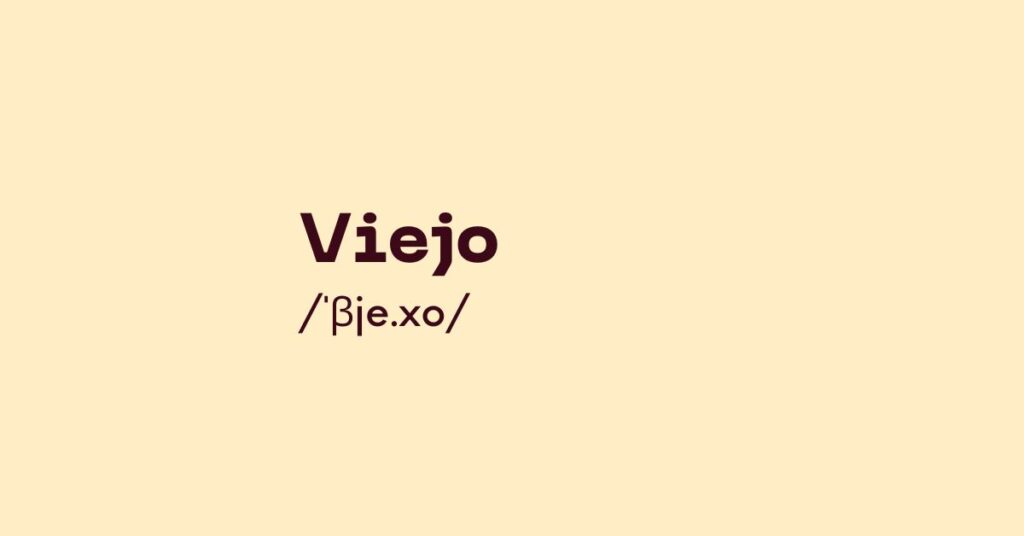Today’s Spanish word of the day is “viejo” in the masculine form, or “vieja” in the feminine form.
It’s an adjective meaning “old” when used to refer to people and other living creatures. When used to refer to possessions such as clothes, it could mean “worn out” or “used”.
The words “viejo” and “vieja” can also be used as nouns to refer to particular older people, for example “un viejo” (“an old man”).
They can also be used in an informal way to refer to your parents, in a similar way to how an English speaker might use the expression “my folks”:
- Mis viejos vienen este fin de semana. – My folks are coming this weekend.
The word “viejo” comes from Latin vetus, which also meant “old” or “long-standing”. This Latin word is also the root of the English word “veteran”.
Example sentences
La ciudad vieja está llena de calles estrechas y edificios históricos.
The old town is full of narrow streets and historic buildings.
En el parque, un viejo alimentaba a las palomas cada mañana.
In the park, an old man fed the pigeons every morning.
“Los viejos” es una forma coloquial de referirse a los padres.
“Los viejos” is a colloquial way to refer to one’s parents.
El viejo roble del parque tiene más de cien años.
The old oak tree in the park is over a hundred years old.
Los viejos tiempos siempre se recuerdan con nostalgia.
Old times are always remembered with nostalgia.

